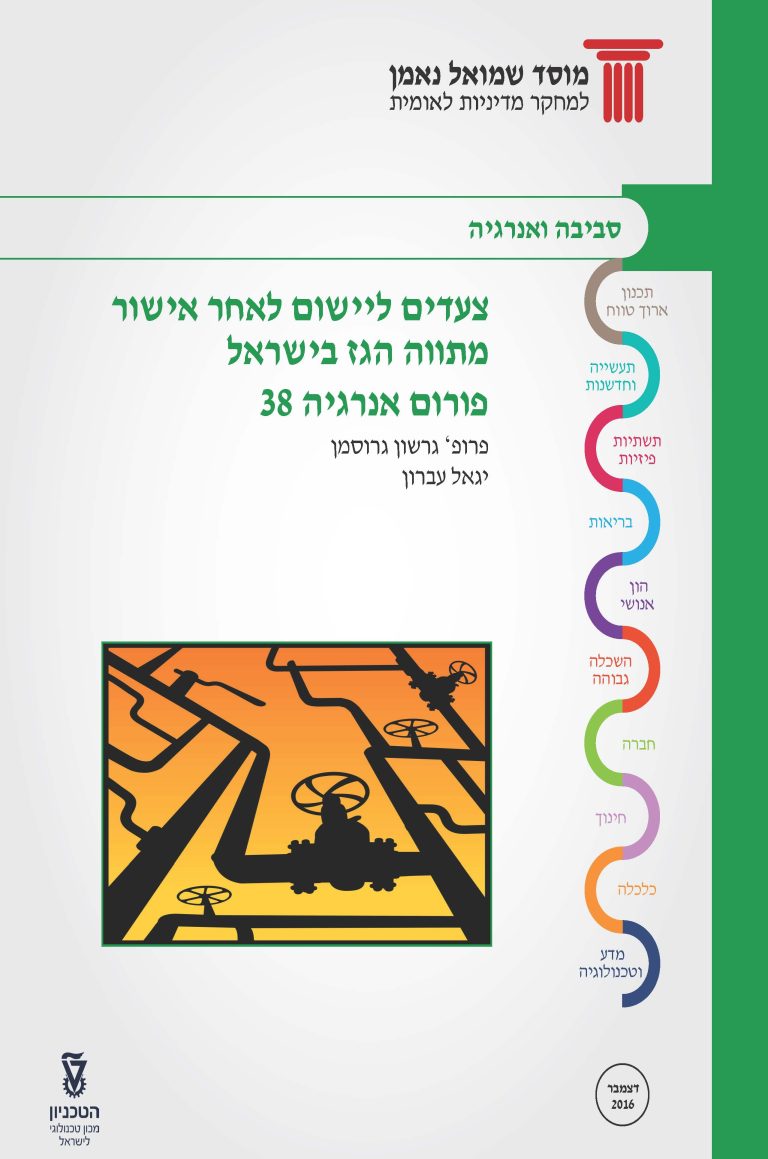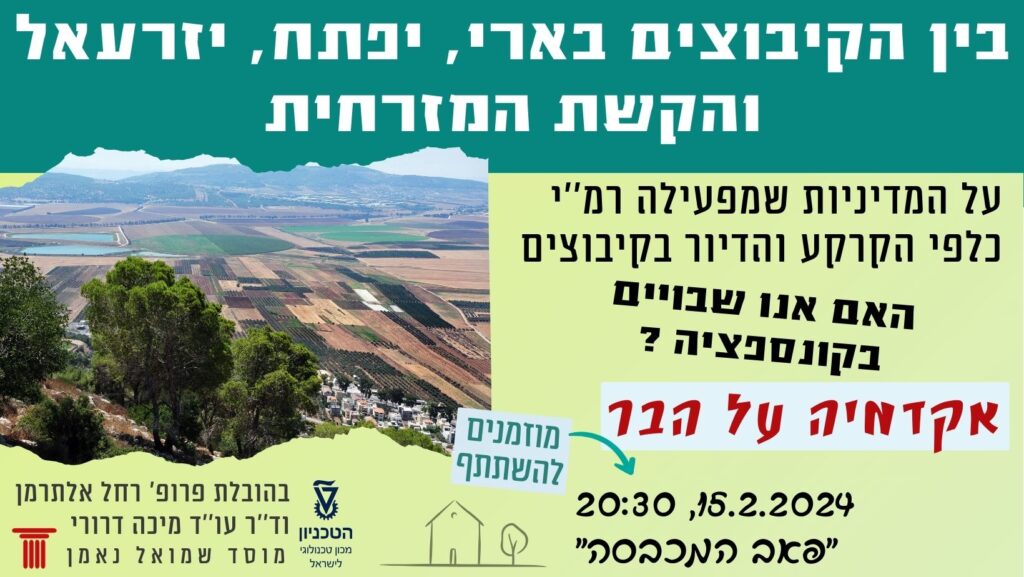Israel’s natural gas era began in 1999 with the discovery of the Noa gas field off the coast of Ashkelon, followed by Mari B in 2000, both forming parts of the Tethys Sea partnership. The Tamar reservoir was discovered at the beginning of 2009 and supplies gas since April 2013. Since then, natural gas reservoirs were discovered in territories under 7 different licenses – none of which has been developed yet. The Leviathan reservoir is the largest of them all, discovered at the end of 2010. The total amount of gas under Tamar, Leviathan, Karish and Tanin licenses is estimated at 1000 Bcm (billion cubic meters).
The Gas Outline is an alias to the Israel Government decision of August 16th 2015 under which it announced its intentions regarding the regulation of natural gas in Israel. The official name of the decision was: “Outline for the increase of natural gas supply from Tamar gas field and fast development of Leviathan, Karsih, Tanin and other natural gas reservoirs”. On March 27th 2016 the Supreme Court overruled the first draft of the Outline. On May 22nd 2016 the Government passed the resolution again with changes in the stability section which drew the Court’s main opposition. Two companies, Noble Energy and Delek Energy, held most of the rights in the four gas reserves of Tamar, Leviathan, Karish and Tanin, and were supposed to be the main beneficiaries of the Outline. The Outline sparked political debate and public protests which were reflected, among other events, in a series of demonstrations throughout Israel and petitions to the Supreme Court.
Upon approval of the Outline it is high time to discuss the steps to be taken to implement it optimally. This discussion is the objective of this Energy Forum.
The main objective of the Gas Outline was the distribution of production licenses ownership to additional franchises and create competition, which will lead to lower prices. Due to the limited size of the Israeli market, it was decided to export some of the gas, while maintaining an adequate reserve for Israeli residents for years to come. During the discussions the problems associated with carrying out export transactions with Turkey, and to a certain extent with Egypt, were raised, due to the nature of the regimes in these countries.
Recommendations:
- It is proposed to review the statutory and economic consequences of possible unification of two authorities which are today separate – natural gas and electricity. The vast majority of natural gas in Israel is allocated to electricity production, and there is a close link between gas and electricity prices. Therefore, regulations and rulings relating to these two energy sources should be coordinated by a single regulatory body.
- Israel has no energy master plan. Steps must be taken to actively promote an energy policy plan (not just electricity) with a broad scope which will bring about stability, mainly in the energy sector. The energy world is based on 20 year investments; given that the average time to approve TPS is 5-6 years, it is inconceivable to have regulatory changes every few months, as is currently the case in Israel.
- Steps must be taken promptly for the establishment of an additional gas reception system, as recommended by the Zemach committee, which advises to erect three coastal gas reception stations.
- It is recommended to broaden the flexibility in gas trade. Gas trade between power plants is currently limited; for example, when one plant has a surplus and another has a shortage, in order to avoid a situation where one plant is accumulating gas and the other plant is idle – it should be possible to trade gas between the two. Such a regulation must be balanced with a level of commitment that will encourage entrepreneurs to develop additional gas fields, thus enabling the market to achieve a surplus over the available demand.
- In the new Outline there exists a theoretical situation where the total signed gas agreements exceed the demand. In other words, consumers may have to pay the gas companies for more gas than they require, as part of a Take or Pay (TOP) agreement. Under the new regulations, the administrator of the electricity system, which consumes 90% of the gas in Israel, can decide who will consume gas despite not being signed to any agreement. It is recommended not to allow gas companies a TOP higher than the total Israeli consumption. Since Israel has a centralized market, the best scenario is to have one barrier – that the state of Israel will consume and distribute. This is the Single Buyer model. The goal is to obtain a situation where Israel is not paying for gas which it does not consume. On the other hand, some of the Forum participants think that this model is not suitable, and will introduce an additional intermediary body that will purchase and sell gas and will only increase the costs.












